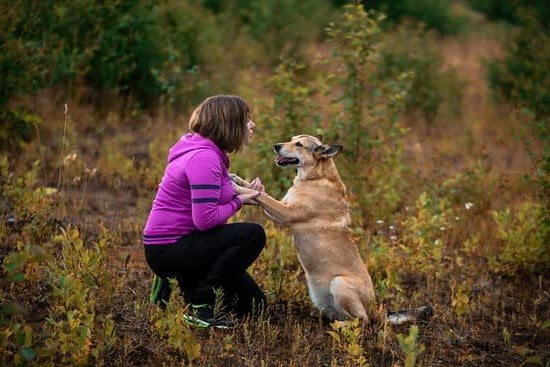Are Boxer dogs easy to train? This question is a crucial factor for potential dog owners considering this energetic and affectionate breed. Boxers are known for their playful nature and loyalty, but their trainability is an essential aspect to consider before bringing one into your home.
Understanding the temperament of Boxer dogs is key to effectively training them. Known for their intelligence and eager-to-please attitude, Boxers can be quick learners when provided with proper guidance and consistent training. However, their spirited and sometimes stubborn nature may pose challenges for some owners.
Early training plays a significant role in shaping the behavior of Boxer dogs. Starting training from a young age helps establish routines and boundaries that will carry onto adulthood. With patience, positive reinforcement, and understanding their unique needs, Boxers can become well-behaved companions in any household.
Understanding the Temperament of Boxer Dogs
Boxer dogs are known for their playful and energetic temperament, making them beloved companions for families and individuals alike. Understanding the temperament of Boxer dogs is crucial when it comes to training them effectively. These dogs are highly intelligent, alert, and eager to please their owners, which can work in favor of successful training sessions.
Energy Levels
One key aspect of the temperament of Boxer dogs that must be taken into consideration during training is their high energy levels. Boxers are a breed that thrives on physical activity and mental stimulation. Without enough exercise, they can become bored, restless, and even destructive. To effectively train a Boxer dog, it’s essential to provide them with regular opportunities for playtime, walks, and engaging activities to channel their energy in a positive way.
Social Nature
Another important characteristic of Boxer dogs is their social nature. They are incredibly affectionate and loyal towards their family members but may display aloofness towards strangers. This social nature can influence how they respond to training, as they may be more motivated by praise and positive reinforcement from familiar faces. When training a Boxer dog, creating a strong bond based on trust and mutual respect can enhance the learning process significantly.
Intelligence and Trainability
Boxer dogs are intelligent animals with a quick grasp of commands and cues. However, their independent streak can sometimes make them appear stubborn during training sessions. It’s important for owners to approach training with patience, consistency, and positive reinforcement techniques to keep the sessions engaging and productive for both the dog and the owner. With the right approach, Boxer dogs can be trained effectively in various skills and behaviors that contribute to a well-behaved canine companion.
The Importance of Early Training for Boxer Dogs
Boxer dogs are known for their playful and energetic nature, making them a popular choice among dog owners. However, this breed also requires proper training from an early age to ensure they grow up to be well-behaved and obedient companions. The importance of early training for Boxer dogs cannot be overstated, as it sets the foundation for their behavior and development throughout their lives.
One of the key reasons why early training is crucial for Boxer dogs is their strong will and independent nature. These traits can sometimes make them challenging to handle if not properly trained from a young age. By starting training early, you can establish yourself as the leader and teach your Boxer dog the basic commands and behaviors that will help them navigate the world around them.
Consistency is key when it comes to training Boxer dogs, especially in their formative months. This breed responds well to positive reinforcement techniques, such as treats and praise, so being consistent in your approach will help reinforce good behavior. Additionally, starting training early allows you to address any behavioral issues before they become ingrained habits that are more difficult to correct later on.
| Training Method | Effectiveness |
|---|---|
| Positive Reinforcement | Highly Effective |
| Consistent Commands | Essential for Success |
Common Training Challenges With Boxer Dogs
Boxer dogs are known for their energetic and playful nature, but they come with some unique challenges when it comes to training. One common issue that owners may face is the stubbornness of Boxers. These dogs have a strong will and independent streak, which can make them resistant to following commands at times. To overcome this challenge, patience and consistency are key. Positive reinforcement techniques, such as using treats or praise, can help motivate Boxers to listen and obey.
Another training challenge with Boxer dogs is their high activity level and potential for hyperactivity. Boxers are known for their boundless energy, which can make it difficult to keep them focused during training sessions. Engaging in regular physical exercise and mental stimulation activities can help channel their energy in a positive way and make training more effective. Incorporating short training sessions throughout the day can also prevent boredom and keep them engaged.
Additionally, Boxers have a tendency to become easily distracted, especially by sights, sounds, and smells in their environment. This distractibility can make it challenging to maintain their attention during training. To address this issue, it is important to create a calm and quiet training environment free from distractions.
Using clear verbal cues and hand signals can also help keep a Boxer’s focus on the task at hand. Consistency in training methods and routines is essential for successfully overcoming these common challenges associated with Boxer dogs.
| Training Challenge | Recommendation |
|---|---|
| Stubbornness | Patience & Consistency |
| High Activity Level | Regular Exercise & Mental Stimulation |
| Distractibility | Create Quiet Environment & Clear Cues |
Effective Training Techniques for Boxer Dogs
Boxer dogs are known for their intelligence, loyalty, and playful nature, making them a popular choice for many dog owners. When it comes to training these energetic and loving canines, it’s important to tailor your approach to their unique temperament. Here are some effective training techniques that can help you successfully train your boxer dog:
- Positive Reinforcement: Boxers respond well to positive reinforcement such as treats, praise, and playtime. Rewarding good behavior encourages them to repeat it, making the training process more enjoyable for both you and your furry friend.
- Consistent Training Schedule: Establishing a consistent training schedule is key when working with boxer dogs. Regular training sessions help reinforce desired behaviors and prevent any confusion or frustration during the learning process.
- Socialization: Exposing your boxer dog to different people, animals, and environments from a young age is crucial for their development. Socialization helps prevent behavioral issues such as aggression or anxiety and ensures that your boxer grows up to be a well-rounded companion.
Using these techniques will not only make the training process more effective but also strengthen the bond between you and your boxer dog. Remember that every dog is unique, so be patient and understanding as you work together towards achieving training goals.
The Role of Consistency in Training Boxer Dogs
Consistency in training is crucial when it comes to teaching boxer dogs new behaviors and commands. Boxers are intelligent and eager to please, but they can also be stubborn at times. This is why consistency in training methods, commands, and rewards is essential for them to understand what is expected of them. By maintaining a consistent training routine, owners can help their boxer dogs learn quickly and retain the behaviors they have been taught.
Consistent Commands and Rewards
When training a boxer dog, using consistent commands for each behavior is key. For example, if you use the command “sit” for the behavior of sitting down, make sure to always use this specific word. Using variations like “sit down” or “take a seat” may confuse your boxer and slow down the learning process. Similarly, providing consistent rewards such as treats or praise for desired behaviors will reinforce positive actions and motivate your boxer to continue obeying commands.
Establishing a Routine
Boxer dogs thrive on routine, so establishing a consistent training schedule can help them understand what is expected of them. Whether it’s daily obedience training sessions or regular walks with structured training exercises, having a set routine can provide stability for your boxer and make learning easier for them. Consistency in the timing and duration of training sessions can also help maintain your dog’s focus and prevent distraction during lessons.
Persistency in Correction
In addition to being consistent with commands and rewards, it’s important to be persistent in correcting unwanted behaviors in boxer dogs. If your boxer displays an undesired behavior like jumping on guests or pulling on the leash during walks, consistently correcting these behaviors every time they occur will help your dog understand that these actions are not acceptable.
With patience and persistence in redirecting negative behaviors towards positive ones, you can effectively train your boxer to be well-behaved and obedient.
The Benefits of Training Boxer Dogs
Training boxer dogs can be a rewarding experience for both the owner and the dog. When done correctly, training can help foster a strong bond between the owner and the pet, as well as ensure the safety and well-being of the boxer dog. Here are some key benefits of training boxer dogs:
- Improved Communication: Training helps establish clear communication between the owner and the boxer dog, making it easier to convey commands and expectations.
- Behavior Modification: Through training, undesirable behaviors in boxer dogs can be corrected or minimized, leading to a more well-behaved pet.
- Mental Stimulation: Boxer dogs are intelligent and active breed, so training provides mental stimulation that can prevent boredom and destructive behavior.
Additionally, training boxer dogs can also enhance their socialization skills. By exposing them to different environments, people, and animals during training sessions, boxer dogs can learn how to interact appropriately in various situations. This can result in a more sociable and confident pet overall.
Ultimately, the benefits of training boxer dogs extend beyond just obedience. It also contributes to their overall happiness and fulfillment by providing them with structure, discipline, and mental stimulation. The investment in time and effort put into training will undoubtedly lead to a well-rounded and well-behaved boxer dog companion for years to come.
Case Studies
Boxer dogs have a reputation for being energetic, playful, and intelligent animals. However, many people wonder: are boxer dogs easy to train? The answer lies in understanding their temperament and the importance of early training. Despite some challenges that may arise during the training process, with patience, consistency, and effective techniques, boxer dogs can indeed be successfully trained.
One key aspect of training boxer dogs is understanding their temperament. Boxers are known for being eager to please their owners, which can work in favor of training. Their intelligence also makes them quick learners, picking up commands with relative ease. However, their high energy levels and sometimes stubborn nature can pose challenges during training sessions.
Early training is crucial for boxer dogs to set a solid foundation for obedience and behavior. Starting from puppyhood, introducing basic commands like sit, stay, and come can help establish good habits early on. Consistent positive reinforcement through treats, praise, and playtime are essential for motivating boxer dogs to follow instructions. Additionally, socialization with other animals and people from a young age can help prevent behavioral problems down the line.
Conclusion
In conclusion, the trainability of Boxer dogs is influenced by various factors, including their temperament, early training, and consistency in training methods. While Boxers are intelligent and eager to please their owners, they can also be stubborn and easily distracted during training sessions. This can present challenges for some owners when trying to train them effectively.
Despite the potential obstacles, with the right approach and dedication, Boxer dogs can be successfully trained. Positive reinforcement techniques, early socialization, and consistent training routines are key components in shaping a well-behaved Boxer. It may require patience and persistence, but the effort put into training a Boxer dog is always rewarding in the end.
Ultimately, while Boxer dogs may not be the easiest breed to train due to their strong-willed nature, they are certainly trainable with the right guidance and commitment from their owners. Understanding their unique temperament and employing effective training techniques tailored to their needs will greatly improve the success rate of training a Boxer dog. With time, effort, and a lot of love, owning a well-trained Boxer can bring years of joy and companionship for any dedicated pet owner.
Frequently Asked Questions
Are Boxers Good Beginner Dogs?
Boxers can make good beginner dogs for the right owner. They are known for their loyalty, friendliness, and playful nature. However, they are also energetic and require consistent training and exercise.
Are Boxer Dogs Hard to House Train?
House training a Boxer dog can be a challenge for some owners, as they are known to be a bit stubborn and independent. Consistency, positive reinforcement, and patience are key when it comes to housebreaking a Boxer.
Are Boxers Difficult Dogs?
Boxers are not necessarily difficult dogs, but they do have certain traits that may require experienced handling. They are high-energy dogs that need plenty of exercise and mental stimulation to prevent boredom and destructive behaviors. Proper socialization and training from an early age can help channel their energy in a positive way.

Welcome to the blog! I am a professional dog trainer and have been working with dogs for many years. In this blog, I will be discussing various topics related to dog training, including tips, tricks, and advice. I hope you find this information helpful and informative. Thanks for reading!





